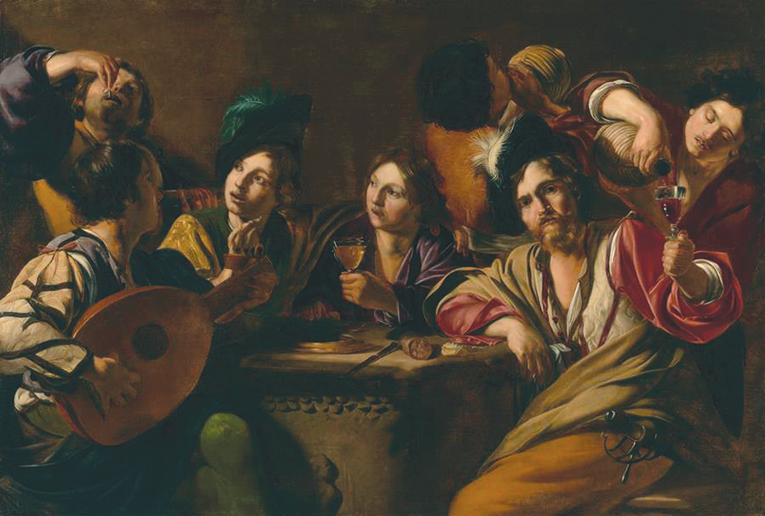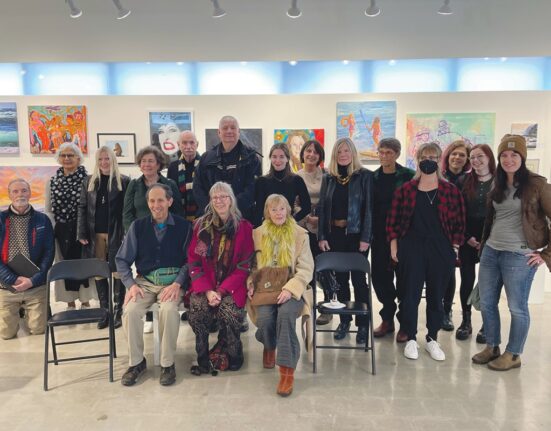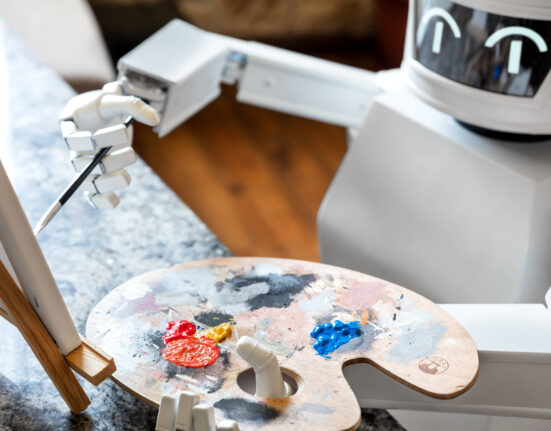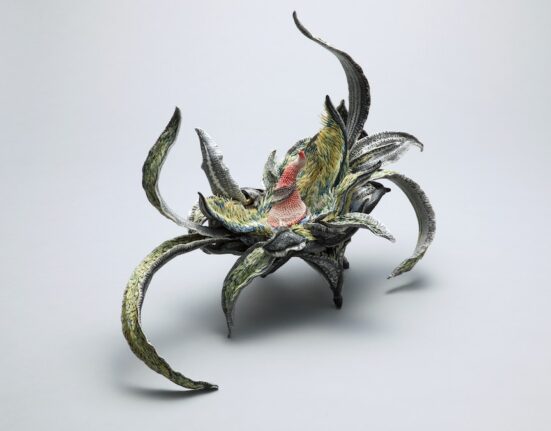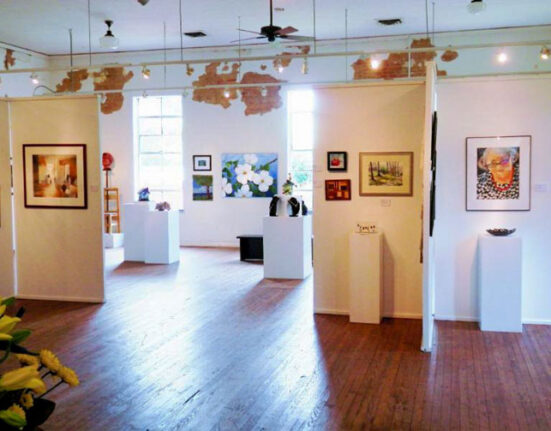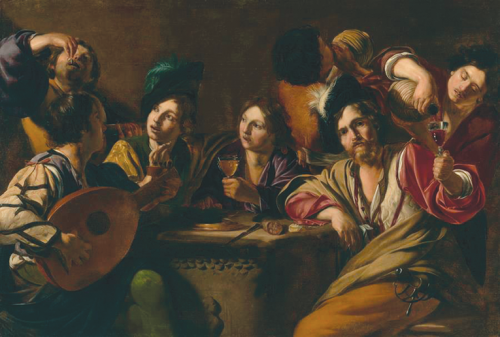
“A Drinking and Musical Party” by Bartolomeo Manfredi is on display in
the Getty Center’s East Pavilion. (photo courtesy of the Getty Museum)
The J. Paul Getty Museum has acquired “A Drinking and Musical Party,” a lively 17th-century genre painting by Italian artist Bartolomeo Manfredi, from a private collector. The painting went on view on April 23 in the Getty Center’s East Pavilion.
The painting depicts a group of seven young men gathered around a table to eat, drink and play music. An elegantly dressed man on the bottom left plays a lute, entertaining the group as they enjoy wine. While largely a merrymaking scene, Manfredi adds suspense with two servants in the background who appear to be shocking onlookers as they steal bread and wine, while the servant on the right fills the glass of a bearded man whose sword is exposed. Even the knife on the table is menacingly pointed toward the viewer. The elements seem to imply the scene could turn into a heated brawl at any given moment. Considered one of Manfredi’s greatest achievements, the painting is characterized by stark contrasts of light and shade.
Trained in northern Italy, Manfredi later moved to Rome, where he discovered the work of Italian painter Caravaggio. He quickly became known as Carravagio’s most devoted follower, a group known as “Caravaggisti” who incorporated the artist’s style in their art. Manfredi was so successful at emulating the artist’s style, particularly with his dramatic use of chiaroscuro, that decades after his death some of his paintings were confused with those by Caravaggio. “A Drinking and Musical Party” was attributed to Caravaggio until Manfredi was rediscovered in the 20th century by scholars and the artist gained a new appreciation.
Typically painted on large horizontal canvases with multiple figures at half-length, Manfredi explored new subjects such as tavern scenes with soldiers playing cards, musicians playing instruments, merry drinkers and fortune tellers. One of Manfredi’s early biographers, Joachim von Sandrart, labelled his new method of painting as the “Manfrediana methodus.” Intended for an open market of private collectors, his paintings were influential among foreign artists, particularly French, Dutch and Flemish artists working in Rome at the time. It contributed to the widespread popularity of the Caravaggesque style across Europe.
“Although Manfredi was not properly a pupil of Caravaggio, his strikingly realistic depictions of genre scenes crucially contributed to the European success of the Caravaggesque movement,” said Davide Gasparotto, senior curator of paintings at the Getty Museum. “Since its reappearance in 1976, ‘A Drinking and Musical Party’ has been considered one of Manfredi’s greatest paintings. Its addition to our collection represents a major coup that will allow us to display a picture that attained enormous success among collectors and amateurs in 17th century Europe.” “A Drinking and Musical Party” joins Getty’s collection of other works by Caravaggisti artists, including “Christ and the Adulteress” by Valentin de Boulogne, “The Supper at Emmaus” by Bartolomeo Cavarozzi and “Christ Crowned with Thorns” by Gerrit van Honthorst. The Getty is located at 1200 Getty Center Drive. For information, visit getty.edu.

